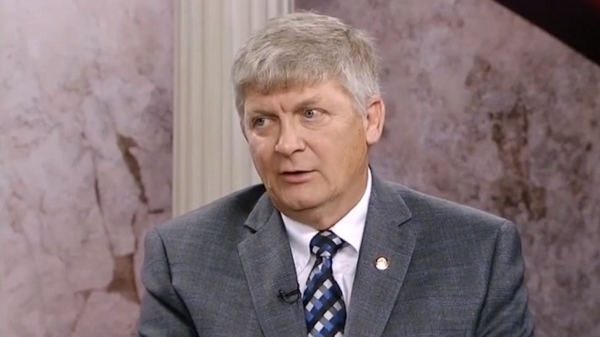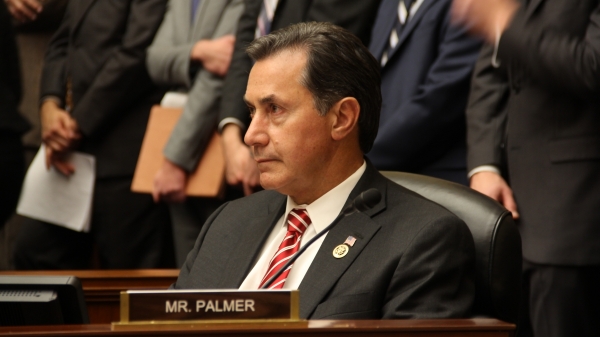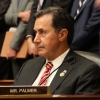When the Legislature convened its 2020 regular session in February, Alabama enjoyed record-low unemployment and record-high revenues in our state budgets.
Pay raises for educators and state employees were foregone conclusions, unprecedented improvements in mental health services offered to Alabamians were being passed, and new and expanded education programs were on the table.
But as legislators returned to Montgomery from the mandatory COVID-19 shutdown period — a little less than three months removed from the session’s start — an entirely new landscape greeted us.
Our record-high employment numbers have turned into record-high applications for unemployment benefits, and our state revenues have been negatively impacted by an economy gone sour.
But Alabamians have always risen to meet a challenge, and I am confident that the historic economy that our state once enjoyed can be rebuilt and made even stronger.
All of us who serve in the House of Representatives have publicly offered ourselves as leaders in our communities and our state, and as Alabama continues its journey on the path back to normalcy, it is important us to lead the way. We cannot expect average Alabamians to feel safe and confident in returning to work and resuming their jobs if the men and women they elect to represent them in Montgomery are not willing to do the same.
So on May 4, we convened at the Alabama State House to resume the regular session and complete the tasks that remained before us.
Our members came from the Tennessee Valley, the Gulf Coast region, and dozens of cities, towns, and crossroads in between, and we took important steps to safeguard their health in a cramped and aged State House where proper social distancing is difficult at best.
House members were required to wear face masks in all public areas, and once they entered the building, they proceeded directly to their personal offices to await the gavel to fall each meeting day.
In order to accommodate the House members at safe distances, only a handful were able to sit at their desks in the House Chamber while the others were spread across the spectators’ gallery and an adjacent overflow room and cast voice votes by microphone.
With one exception House Democrats boycotted the session and cited on-going concerns over the potential spread of COVID-19 as their reason, which was certainly their right.
I do want to commend State Rep. Rod Scott, D – Fairfield, the ranking minority member of the education budget-writing committee, for being the lone member of his party to attend the remainder of the session. His input was valuable, and his participation was much appreciated.
In addition, social distancing and health concerns prompted us to take the unusual step of closing access to the State House to the public, lobbyists, and other visitors, but video streaming of every public meeting was made available on the Internet..
Drafting responsible and prudent General Fund and Education Trust Fund budgets that accurately reflect the current economic climate is the Legislature’s only constitutional obligation and became our highest priority.
By approving Alabama’s spending plans now, rather than waiting until later in the year, many local systems avoided unnecessarily pink-slipping their non-tenured teachers, plans for the coming school year could take shape, and state agencies could begin implementing the adjustments in services that COVID-19 will likely demand.
We were also able to craft balanced budgets because budgeting and spending reforms enacted over the past decade have ensued that several hundred million dollars remain accessible and available in times of crisis, so Alabama is better prepared than many other states to weather this economy.
General Fund Chairman Steve Clouse, R – Ozark, and Education Trust Fund Chairman Bill Poole, R – Tuscaloosa, worked hard to assemble budgets that are fiscally-responsible, conservative, and disciplined.
Because of federal mandates and rulings in on-going lawsuits over state prison conditions, General Fund spending increased by 7.5% under the budget that was signed by the governor, but the increase was dramatically less than originally expected when the Legislature first convened in February.
The $7.2 billion Education Trust Fund budget that was approved included new funding for our award-winning “First Class” Pre-Kindergarten program and the reading and literacy initiatives. Additional dollars were also appropriated to help school systems absorb the loss of local revenues due to the Coronavirus.
Lawmakers also approved a $1.25 billion bond issue for school construction, which is the state’s largest capital improvement investment in history and the first in more than a decade. The bond issue will provide money to every city and county K-12 school system and to two- and four-year colleges and was made possible by retiring old debts and taking advantage of today’s historically-low interest rates.
Public officials at all levels of government are often subject to criticism, and I will admit it is often well-deserved, but they should also be recognized for jobs well done.
The men and women who participated in the unusual, extraordinary, and unforgettable final week of the 2020 regular session put their responsibilities ahead of their own health concerns and answered the call to duty. They stood tall when Alabama needed them most.
The members of the House of Representatives are some of the finest people I have ever known, and serving with them reinforces my confidence that Alabama’s best days still remain ahead of us.























































